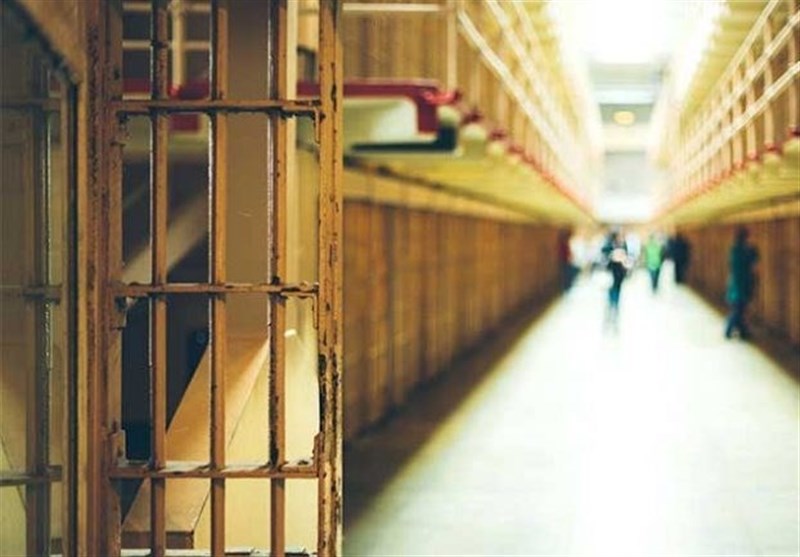Alwaght- According to official Bahraini media, the country's king issued on Monday a royal amnesty decree to 1,584 prisoners convinced for criminal and "riot" cases. The amnesty, the largest order in recent years, came on the eve of the anniversary of his ascension to the throne.
King Hamad bin Issa Al Khalifa took the throne in the tiny Persian Gulf island monarchy on March 6, 1999.
The statement published by the state media contained informatin if the decree includes the political prisoners, but given the mentioning of the "riot" prisoners that included prisoners that were arrested during the anti-government uprising of 2011, very likely part of the freed prisoners are political ones. The Bahrain Institute for Rights and Democracy, a rights monitoring group based in London, said that there was possibility that a number of them are political prisoners.
Sayed al-Widaee, the head of the institute, said that the latest royal amnesty decree covers political prisoners, because the riot prisoners include those who want political change.
Al-Khalifa regime had earlier granted conditional amnesty to some other prisoners under the 2017 Alternative Penalties Act, which allows prisoners who have served at least half of their sentence time to be released through measures including community service, rehabilitation and spending the remainder of their sentence on electronic monitoring outside of prison.
The government's National Communication Center in a statement reported that a large number of the released prisoners were essentially convinced for violent crimes related to disruption of public order.
A government official who spoke to the Reuters under the condition of anonymity said that about 65 percent of the released people include prisoners convinced for rebellion against the government.
According to the announcement of the National Contact Center, a NGO, about 6,500 prisoners in Bahrain have benefited from this law for release from prison since the adoption of the Alternative Penalties Law in 2017.
Bahraini interior minister said that since COVID-19 outbreak in 2020, 1,486 prisoners were released, with 901 of them granted royal amnesty for "humanitarian grounds."
Though Bahrain's new royal amnesty was immediately welcomed by the US embassy in Manama that in a statement published on its official account on X praised the move and called it "a sign of the king's commitment to a successful future for all Bahrainis," the regime of Bahrain has always been criticized by international organizations in the past years for systematically violating human rights and restricting freedom of expression and imprisoning thousands of critics, from the common people to the political elites.
According to data, Bahrain has the largest number of political prisoners among the Arab countries. Bahrain Center for Human Rights in September 2022 reported that Bahrain was the top Arab country with the largest number of political prisoners, about 4,500, suffering under pathetic conditions.
Al-Khalifa and challenge of legitimacy
When Hamad bin Isa Al Khalifa assumed the power in 1999, he changed the political system to a constitutional monarchy by announcing the amendments to the constitution and the national charter in 2001, in order to gain a popular base and ensure the political power of the Sunni family of Al Khalifa, which rules over the Shiite majority state.
However, the establishment of an election system not only could not lead to the circulation of the elites or guarantee high political positions for Shiite politicians, but also even the royal family continued to maintain its grip on the power against lawmakers as representatives of people in the parliament. Meanwhile, the lack of distribution of power and the continuation of discriminatory policies against the Shiites motivated an uprising against the government amid waves of revolutions in Arab world.
Now the Al Khalifa rulers through their amnesty decrees on the one hand seek to ease the foreign criticism against totally closed political system and the suppressive policies of the government targeting people seeking political reform and on the other hand seek to bridge the broadening gap between the government and the people and rebuild their shaky legitimacy foundations. But the fact is that years of repressive policies and sentencing thousands of critics and political and social activists to long terms in prison and banishment in largely demonstrative and unfair trials have caused deep public distrust in the rulers' intention to make genuine reforms.
Since suppression of the protests in 2011, Al Khalifa regime not only did not yield to the reforms demanded by the public, but also even the protesting political factions within the constitution were banned and their leaders were arrested and imprisoned. A top example was Sheikh Ali Salman, the head of Wifaq movement, who was handed life sentence.
One of the noticeable examples of the continuation of nationwide dissatisfaction with the government and its promises of reform was the boycott of the parliamentary and municipal elections in November 2022, which were botched in the absence of political freedoms.
So, given the state of public distrust and gaps existing between the people and Al Khalifa, the government's interest in bridging this gap requires fundamental and real reforms along with releasing all political prisoners and holding free elections with the presence of the opposition, and, indeed, showy moves do not make any difference.



























